10 Movies That Wanted To Launch Franchises But Were Rejected by Audiences
Movie franchises that never happened after the first film bombed include Spwan, The Golden Compass, and The Mummy.
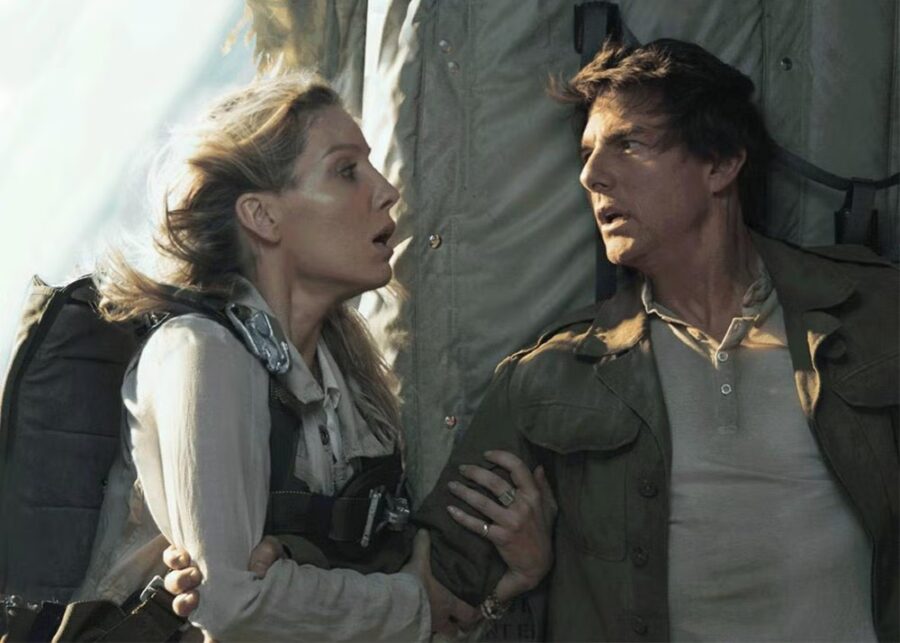
Today it can seem like every piece of media is launched with the intention of becoming a massive movie franchise, but more often than not, those attempts fail. They could already be part of a larger whole, such as Green Lantern, or something wildly experimental that failed to catch on, like the Wachowski siblings’ Speed Racer. Either way, the ten films on this list had massive budgets and huge expectations, and each one failed spectacularly.
10. The Golden Compass (2007)
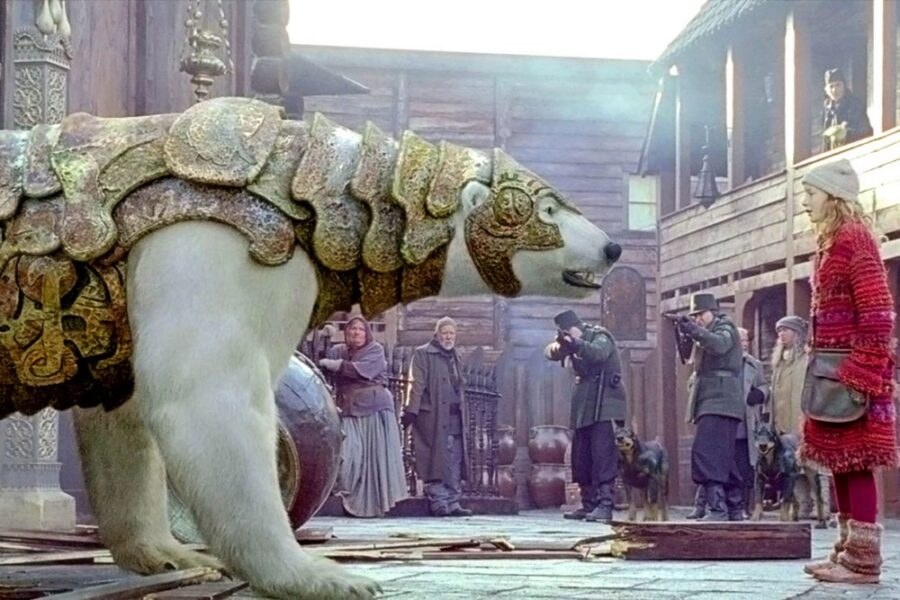
The Golden Compass was supposed to be the first in a series of films adapting the His Dark Materials novels by Phillip Pullman into the next big movie franchise. With an all-star cast comprised of Daniel Craig, Nicole Kidman, Sam Elliot, Eva Green, and Christopher Lee, backed by one of the largest budgets in New Line Cinema’s history, the film was set up to succeed. And yet, no one showed up to watch it in theaters, as the film only made $70 million domestically, well below the $180 million production budget.
The following two movies, adapting A Subtle Knife and The Amber Spyglass, were canceled following the failure of The Golden Compass. Beyond the astronomical budget, fans of the books were angered at changes made in the movie, while other groups called for its boycott due to the anti-religious themes of the novels. At the end of the day, the film was a very expensive failure to create a movie franchise, even if the same mistakes made in its development will continue to show up throughout this list.
9. Master And Commander: The Far Side Of The World (2003)
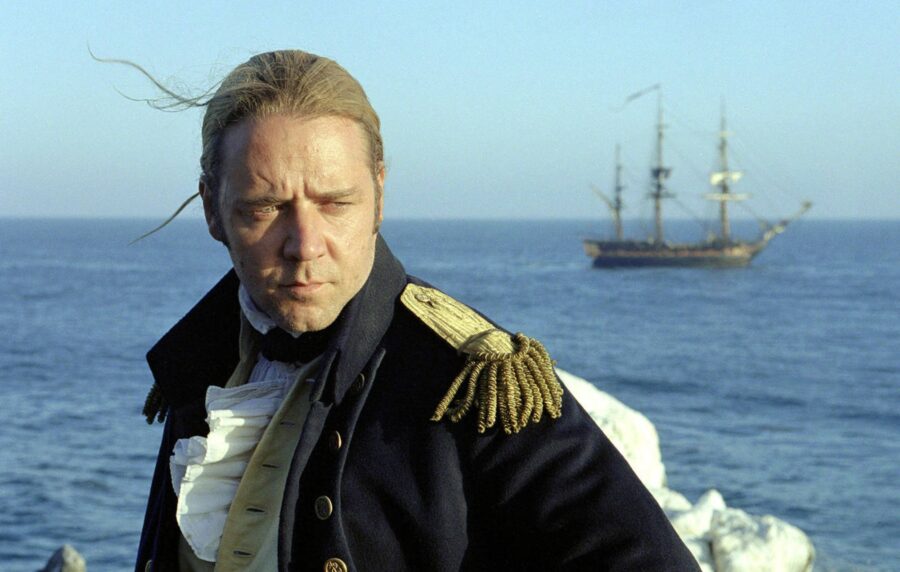
At the turn of the century, Russell Crowe could do no wrong, as between Gladiator and A Beautiful Mind, he had back-to-back Best Picture winners; alas, his streak was snapped with Master and Commander: Far Side of the World. Bringing the Horatio Hornblower novels to the big screen as a movie franchise aimed at older adult viewers, the film was at least nominated as Best Picture at that years’ Oscars, but the mid-November release ran into a comedy buzz saw and ended up with a disappointing theatrical run as a result. Coming out the same day as Will Ferrell’s Elf, Master and Commander made only $25 million in its opening weekend, ending weeks later with a worldwide gross of $212 million.
That number wouldn’t be so bad except for the $150 million production budget, which doesn’t take marketing into consideration, but even with the decent performance, audiences weren’t into a realistic and smart take on 18th-century naval combat. A few months earlier, Pirates of the Caribbean: Curse of the Black Pearl came out and exceeded expectations to become one of the most popular films in the world, undercutting Master and Commander in the process. Almost 20 years later, a prequel film has been announced, and though it is seemingly stuck in development hell, there’s hope that someday the Hornblower novels will succeed on the big screen.
8. New Mutants (2020)
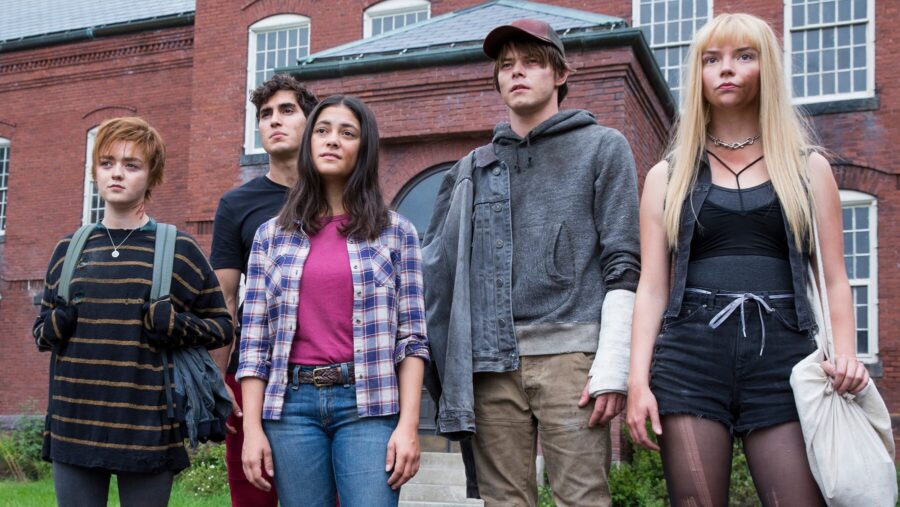
A Marvel movie starring Anya Taylor-Joy and Maisie Williams, spinning off from The X-Men films, should have been a success, but a series of bad decisions and poor timing robbed The New Mutants of any chance to be a success. Filmed way back in 2016, long before Taylor-Joy broke through with Emma and The Queen’s Gambit, the film was delayed so often that no one thought it would be released. Following Disney’s purchase of Fox, reshoots scheduled two years earlier were finally completed, and the movie stumbled into theaters, where it bombed hard.
The New Mutants wanted to expand the X-Men movie franchise by adapting the hit team from the 80s, but instead of being a standard superhero origin film, it’s set in a mental institution. There’s no world-ending threat; instead, it’s an intimate film in one location with a very limited cast and a plot seen in hundreds of teen shows. Planned follow-up films, featuring the alien Phalanax and introducing Warlock (not that one, the techno-organic alien), then a trilogy ender covering “Inferno” (no, not the recent storyline, the one from the 80s).
7. Sahara (2005)
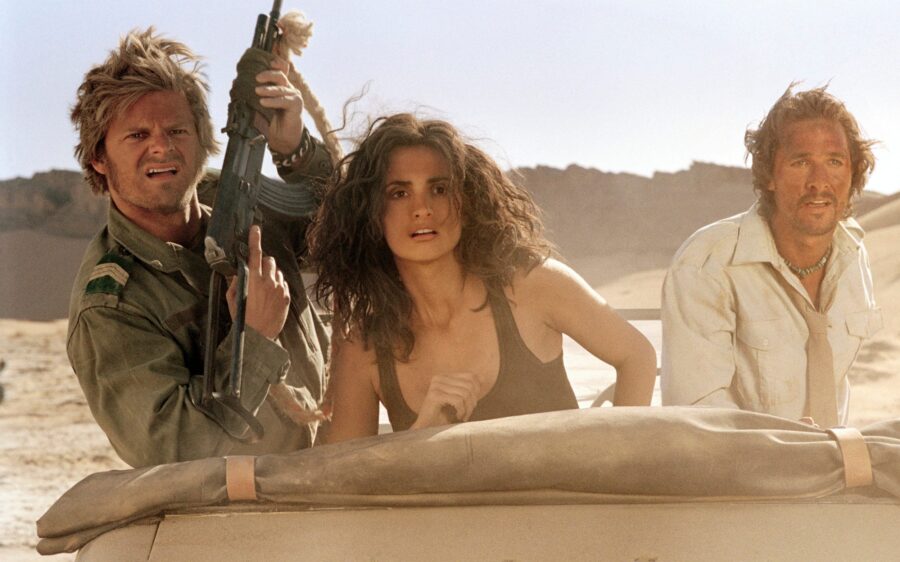
Matthew McCoungahey, Penelope Cruz, and Steve Zahn star in a film adapting the best-selling novel by Clive Cussler that should have been the first in a long-running movie franchise. Instead, Sahara was such a disaster that it ended in a lawsuit between the author and Philip Anschultz, the film’s producer, that dragged on for years and cost $20 million, ensuring no one made money from the suit. In fact, the film itself was overshadowed by all of the behind-the-scenes drama, including accusations of bribes paid to the Morrocco government that violated American law.
A movie franchise based on the extensive work of Clive Cussler still sounds, today, like a great idea. It’s just a shame that the first one was so poorly received and angered the author so much that now his estate has blocked off his work from future adaptations. Oh right, and the film is about a lost Confederate ship with gold coins that was found in the Sahara desert, but again, the plot is inferior to the real-life drama.
6. The Hulk (2003)
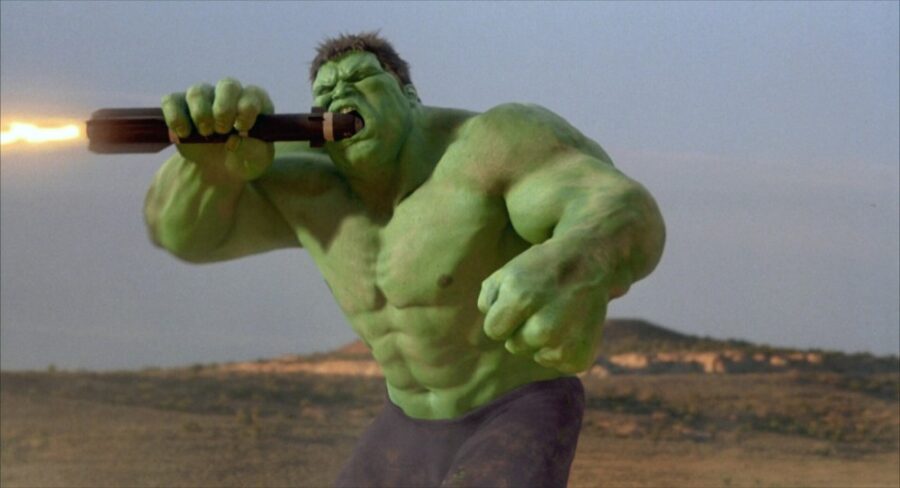
Some of the movies that were supposed to spawn a franchise on this list aren’t bad movies, and a few are quite good, though in the case of Ang Lee’s controversial The Hulk, it all depends on who you ask. Starring Eric Bana as Bruce Banner, the film was too experimental, with some scenes fading into literal comic book panels and presenting the story as a monster movie instead of as a superhero origin. The dark storyline touches on Banner’s relationship with his father, something the MCU hasn’t touched but is key to most of his best storylines in the comics.
When it was first released, Spider-Man, Blade, and The X-Men had already set the groundwork for superhero films, though we were still a few years away from Iron Man launching the MCU. A sequel was planned for 2005, featuring the Abomination and The Leader, both of whom are now in the MCU, but following the box office disaster of The Hulk, those plans were scrapped. Ang Lee’s vision has been re-evaluated recently, resulting in a cult following around the film, even if it was just far too weird and strange to anchor a mainstream movie franchise.
5. The Dark Tower (2017)
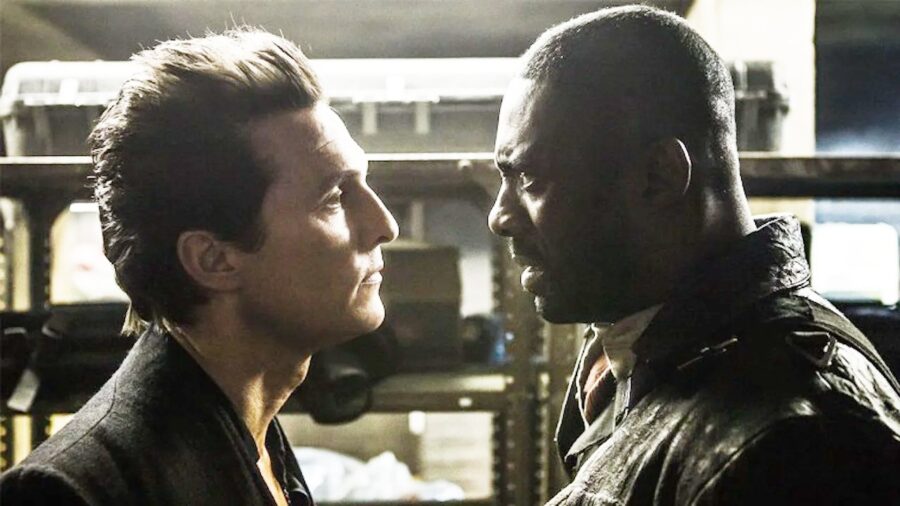
Matthew McConaughey’s second appearance on this list comes in another attempt to take a book series, in this case, The Dark Tower by Stephen King, into a movie franchise. Playing The Man In Black opposite Idris Elba as The Gunslinger, fans of the books knew the movie would fail horribly since there was no way to translate dozens of novels into a two-hour film. Taking the dark horror of King and converting it into a PG-13 film also robbed the story of most of its bite, a decision that producer Ron Howard admitted was a mistake after the film became one of cinema’s biggest bombs.
Earning only $113 million worldwide during its theatrical run, it failed to recoup the production budget and never made a cultural impact. Unlike other films on this list that have been re-evaluated, The Dark Tower is still considered to be horrible and a complete waste of King’s award-winning series. Plans for a television series also went down in flames after Amazon opted to move on and instead set their sights on Tom Clancy and J.R.R. Tolkien for inspiration.
4. Spawn (1997)
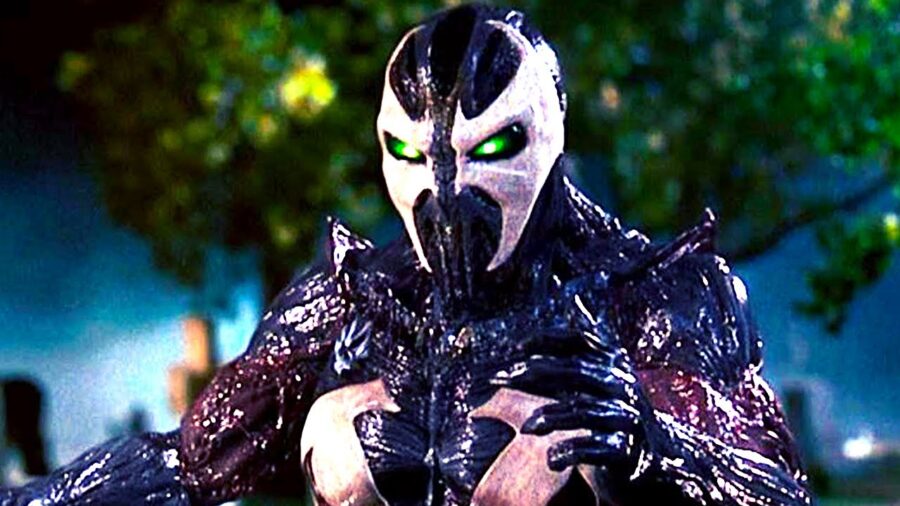
The biggest comic of the 90s, Spawn revolutionized the industry, so bringing it to theaters was an easy decision, but Todd Mcfarlane’s greatest creation was let down by the technological limitations of the time. As a result, the action sequences were all repetitive, and the overly serious dialogue that made the comics appear to be deep, sounded stale and wooden when spoken out loud by otherwise great actors. A planned movie franchise, with a follow-up focused on the human detectives Sam and Twitch, was scrapped when critics and fans panned the film.
Again, time has been somewhat kind to the film, with Michael Jai White finally receiving credit for being the first black superhero on the big screen and John Leguizamo’s manic performance as Violator getting praise for how crazy it is. A Spwan movie franchise isn’t out of the question, nearly 20 years later, with Todd Mcfarlane insisting he’s still working on a script for a new movie.
3. Super Mario Bros (1993)
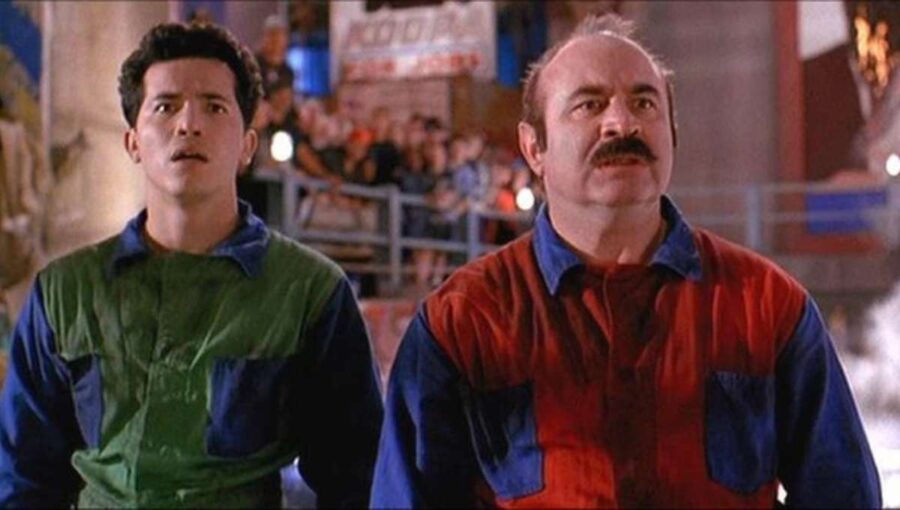
John Leguizamo’s second appearance on the list comes his appearance as Luigi Mario in Super Mario Bros, alongside Bob Hoskins. The first video game adaptation in history had the film succeeded, it could have opened the door to further films such as The Legend of Zelda or even a sequel that would inexplicably involve vegetables, but it wasn’t a success. The recent Chris Pratt Mario Bros showed how to make the venerable game series into a successful film, by being true to the source material and making it animated, instead of ignoring the games for a strange neo-noir cyberpunk theme.
There are a few fans of this film, notably Quentin Tarantino, but most critics are wrong, and the film is still horrible. If Super Mario Bros was a movie franchise launching hit, history would have been much different, perhaps with video games and comics trading places as to when they rose in popular culture. Instead, it made $39 million, failing to earn back its budget and scaring Nintendo away from movies for 30 years.
2. John Carter (2012)
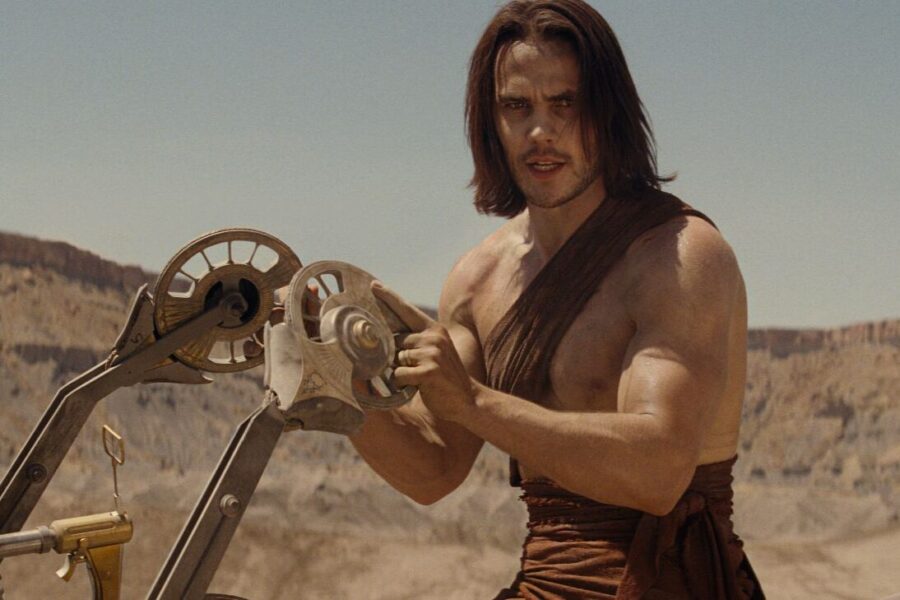
Taylor Kitsch was once supposed to be a big deal in Hollywood following his breakout in Friday Night Lights, but it never happened, from X-Men Origins: Wolverine failing to launch a Gambit movie to Battleship, the poor guy has been in some of the worst films ever made (check out his IMDb, he deserves better). John Carter is not a bad film, in fact, time has again been kind and a critical reassessment has recognized the joyous spirit of adventure that permeates the story. What should have been a pulpy throwback like Indiana Jones was instead, horribly mismarketed and released just as the MCU was picking up steam and becoming a cultural juggernaut.
John Carter, with a $100 million marketing budget alone, was supposed to be the next big thing from Disney, and instead, it was such a disaster that it helped bring the balance sheet for the entire company into the red for a quarter. The disaster, which obviously failed to launch a movie franchise, nearly brought down the company and allegedly started the acquisition process for Star Wars, since Disney couldn’t make an original sci-fi hit with all the money in the world.
1. The Mummy (2017)

The Mummy, starring Brendan Fraser, launched two franchises, while The Mummy, starring Tom Cruise, ended around five of them. That’s because this was Universal’s latest attempt at launching the “Dark Universe,” a series of inter-connected films using the famous Universal monsters (Dracula, Frankenstein, Wolfman, Mummy, Invisible Man, etc.), even going so far as to introduce Russell Crowe as Dr. Jekyll, their version of Nick Fury. None of the other films on this list are as shameless in setting the stage for a large movie franchise, making The Mummy the biggest failure.
In terms of box office, the film made $410 million, an impressive amount, but with production and marketing costs included, it was over $100 million from breaking even. The Bride of Frankenstein, starring Angelina Jolie, was canceled as a result, and Universal pivoted to standalone films for the monster menagerie, resulting in the critically and financially successful The Invisible Man starring Elisabeth Moss.












